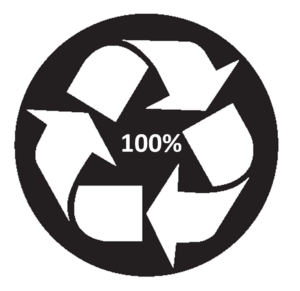Most of the paper packaging material made by Canadian mills today is 100% recycled content. Old corrugated boxes and cartons are collected from the back of factories and supermarkets; used paper from offices; and a wide range of paper material gathered and sorted from residential (Blue Box) programs across the country.
It wasn’t always the case, says John Mullinder, executive director of the Paper and Paperboard Packaging Environmental Council (PPEC), which has been tracking and promoting the industry’s performance since 1990.
The increase in recycled content has paralleled the move of Canadians into towns and cities, offering the mills better opportunities to harvest the nearby ‘urban forest’ of used paper and board. Initially the mills focussed on recycling old corrugated (shipping) boxes and printing and writing paper from offices, then broadened their interest to residential (Blue Box) sources as those programs developed. In 1990, for example, most Canadian cereal and shoe boxes (although made with 100% recycled content) ended up in landfill. PPEC and its customers led North America in pioneering the further recycling of this material so that today some 94% of Canadians can recycle it.

Packaging Mills
Most packaging mills in Canada now produce a 100% recycled content board. That’s the way the mills were built. A handful of mills blend recycled material with sawmill residues (wood chips, shavings, and sawdust left over from lumber operations); or when sawmill residues are in short supply, freshly cut trees.
“But when you add all the numbers up,” says Mullinder, “the Canadian industry hardly uses any freshly cut trees to make paper packaging at all. The notion that every time we want to make a new box or carton, we just grab a chainsaw and head for the forest, is totally false.’’
According to PPEC’s latest survey of the industry, 2.1 million tonnes of recycled board was shipped by Canadian mills to domestic and export markets in 2018. Some 87% of that was from mills making a 100% recycled content product (linerboard, corrugating medium, or boxboard).
For more information on recycled content (how it’s defined, how it’s measured, what averages mean, the difference between pre and post-consumer recycled, how the packaging grades differ, the need for virgin material, and the problem with regulating minimum recycled content levels) see the latest version of PPEC’s backgrounder Understanding Recycled Content or go to the PPEC website www.ppec-paper.com
Summary from PPEC’s 2018 Recycled Content Survey
Canadian Mill Shipments (including kraft paper):
3.37 million tonnes
Recycled Content Shipments:
2.11 million tonnes (62.7%)
Recycled Content from 100% Recycled Mills:
1.83 million tonnes (86.7%)
